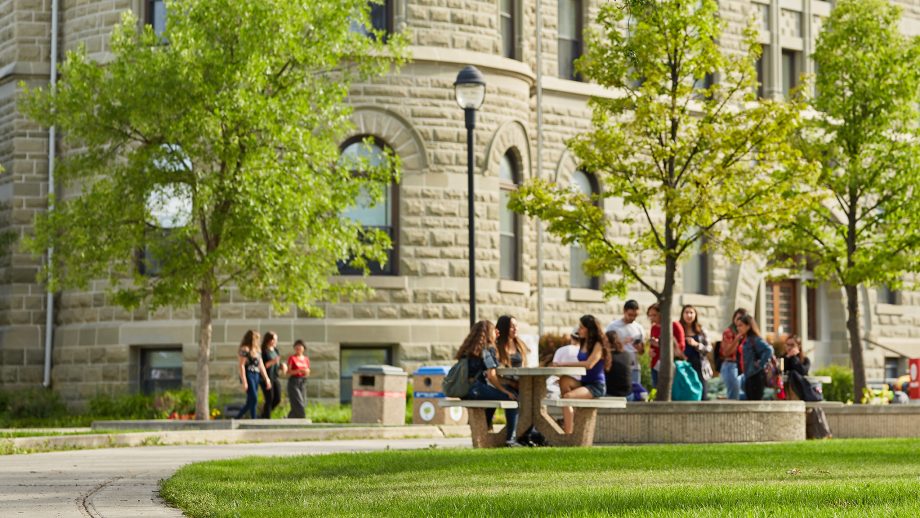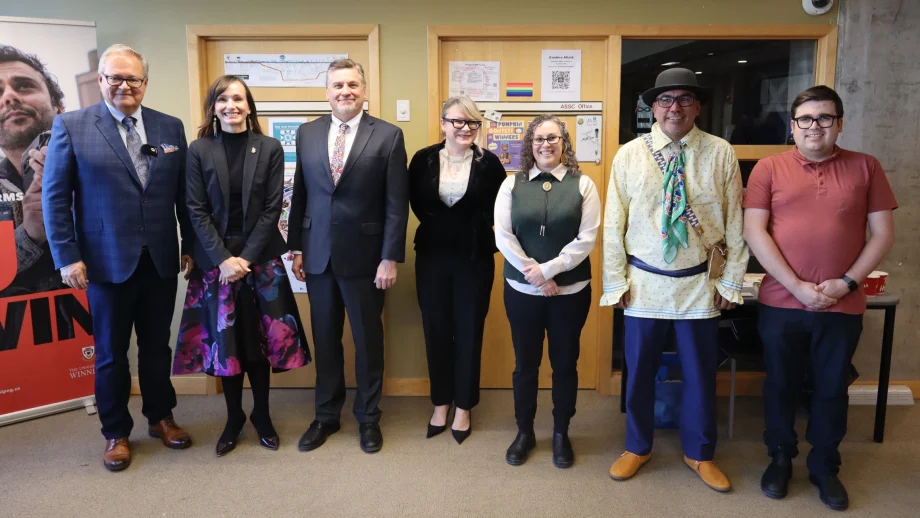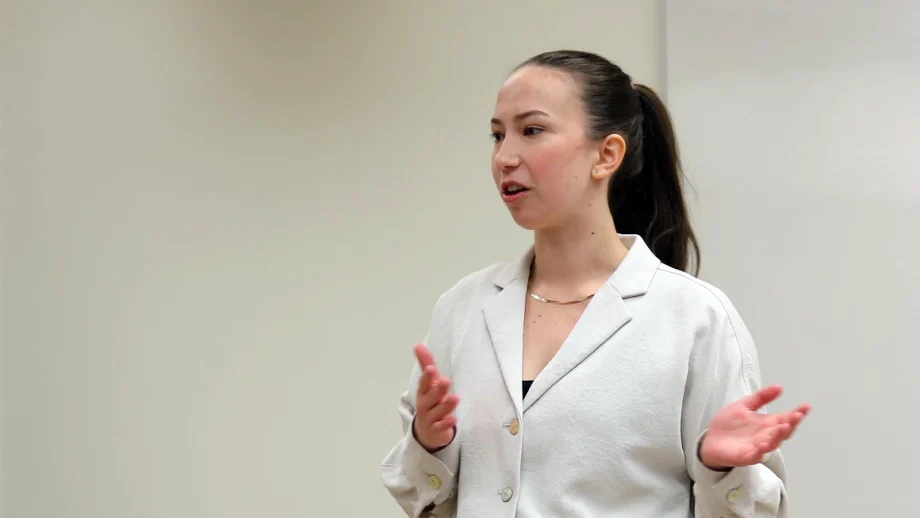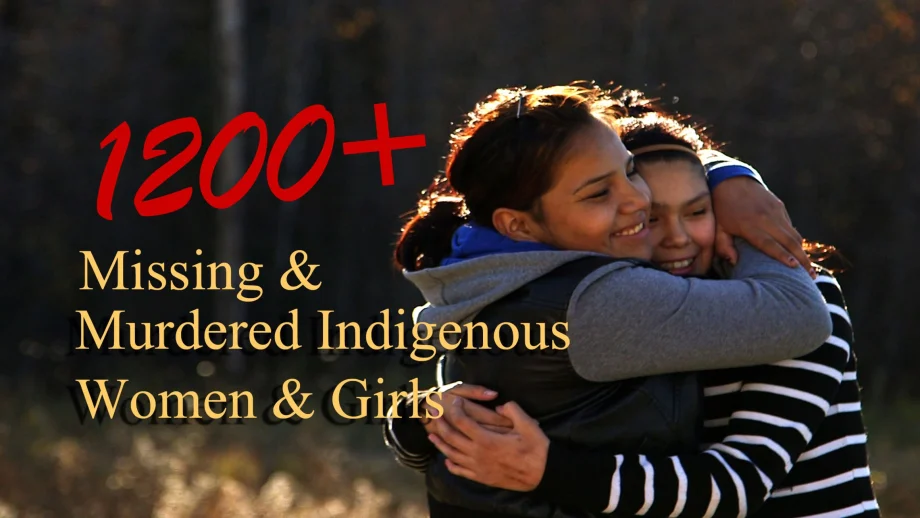About Indigenous Studies
Indigenous Studies and The University of Winnipeg is grounded in the intellectual and cultural heritage of Indigenous peoples in Canada and around the globe. Students from all backgrounds explore Indigenous topics through a multidisciplinary lens that includes politics, economics, anthropology, history, philosophy and law. The program provides Indigenous language courses in Cree and Ojibwe.
Degrees and programs offered include: Bachelor of Arts (3- or 4-year, Honours), Joint Degree/Diploma with Red River College, and Masters of Arts in Indigenous Governance.
Indigenous Studies graduates find employment in a wide variety of fields including government, advocacy, education, healthcare, not-for-profit organizations, community and international development, and business. Graduate students in the Masters of Arts in Indigenous Governance stream are well-suited for managerial and leadership roles in government and non-governmental agencies.
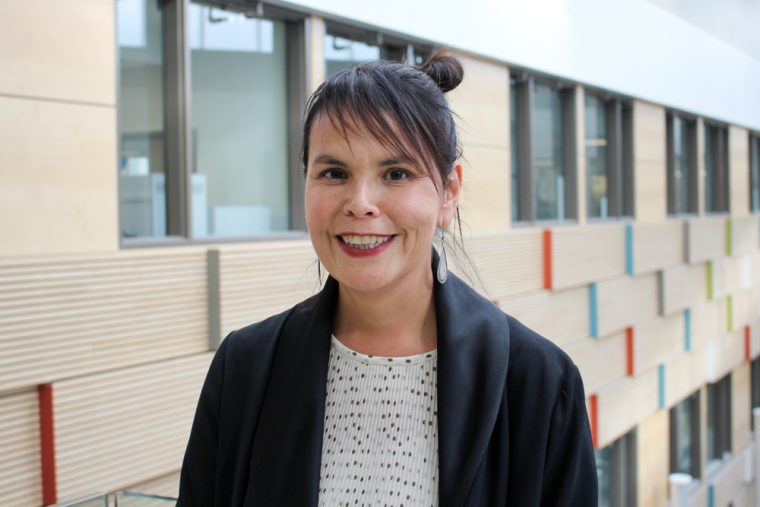
Lorena Sekwan Fontaine, ©UWinnipeg
LEGACY AND LANGUAGE
Associate Professor: Lorena Sekwan Fontaine
A longtime advocate, Lorena Sekwan Fontaine’s research centres on the legacy and intergenerational effects of residential schools, as well as Indigenous language rights in Canada. She is involved in a major digital storytelling project, titled nindibaajimomin, that shares the experiences of children of residential school survivors from across the country. Sekwan Fontaine is also working to get Indigenous language loss recognized as a constitutional issue.
“My goal is to one day see young children going to school and having the opportunity to go to an immersion program in an Aboriginal language.”
A strength of Indigenous Studies, says Sekwan Fontaine, is the program’s focus on reconciliation and decolonization: “Students who are going to work in any field are going to deal with Indigenous peoples at some point so I think that it’s critical they know about this history.”
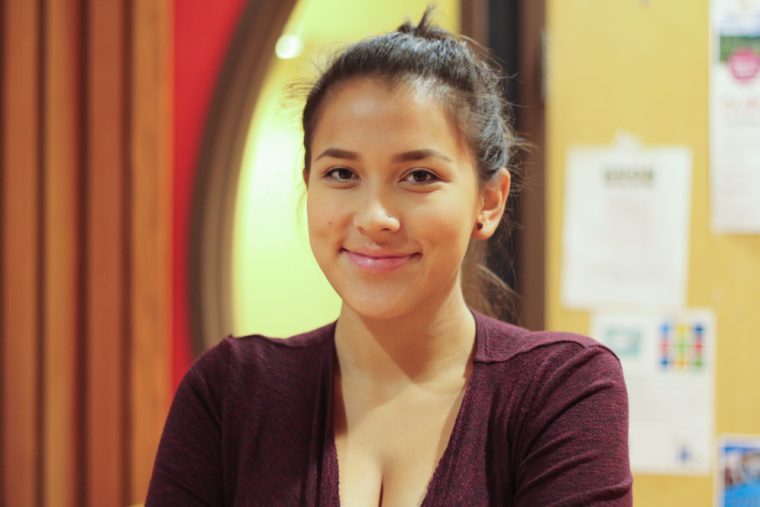
Charlene Moore ©UWinnipeg
DOCUMENTING TRADITION
Student: Charlene Moore
With a degree in Indigenous Studies and filmmaking, Charlene Moore is currently pursuing graduate studies. Combining her passions, Moore’s thesis is a documentary film that explores the cultural significance of moccasins.
A highlight of her undergrad was taking part in a summer course on ethnobotany — the scientific study of the relationship between peoples and plants — during which she learned how to collect and use traditional medicines.
Moore appreciates the multidisciplinary focus of the program. “There’s something in it for everyone and you can really go anywhere with it,” she explained, adding that her goals include starting a production company and working with the First Nation her family is from. “I would really like to go back there and be able to help out in whatever way possible whether it’s doing research, or helping out with community planning.”
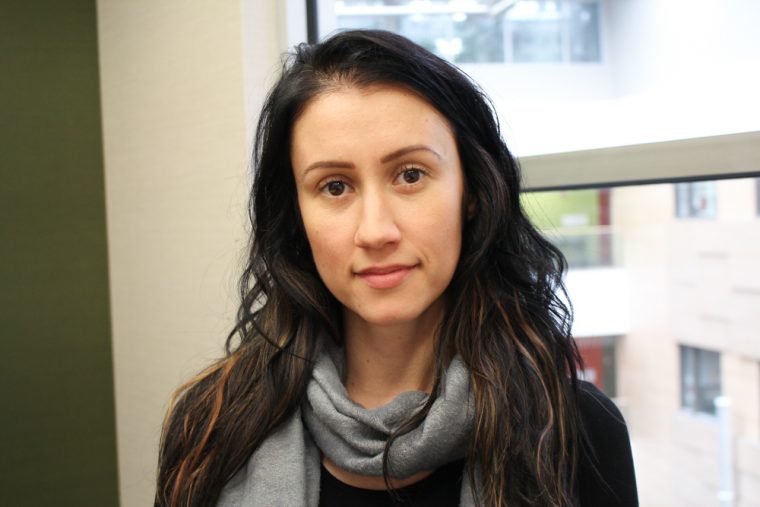
Brielle Beaudin, ©UWinnipeg
REAL-WORLD RESEARCH
Alumna: Brielle Beaudin
A recent grad of the Masters of Arts of Indigenous Governance program, Brielle Beaudin is a policy analyst with the Tripartite Self-Governance Negotiations department at the Manitoba Métis Federation. She develops and researches policies that benefit the province’s Métis community.
Beaudin says her background in Indigenous Studies gives her an upper hand in her day-to-day work.“The program really prepared me to think critically and conduct research.”
Her current passion for research was inspired by oral history projects on Métis identity and food sovereignty she completed at UWinnipeg.
“I realized I was really interested in doing research and doing research in my own community was something that was eye-opening to me,” she explained. “It became very addictive to me in the sense that I love history so much and was able to document those social realities today.”
See more Spotlight features here.

